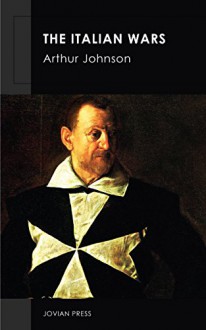At the date of the Italian expedition, Charles viii. had been eleven years on the throne of France. The monarchy to which he succeeded was, perhaps, less controlled by constitutional checks than any other in Europe. The crown had earned popularity as the leader in the struggle against the...
show more
At the date of the Italian expedition, Charles viii. had been eleven years on the throne of France. The monarchy to which he succeeded was, perhaps, less controlled by constitutional checks than any other in Europe. The crown had earned popularity as the leader in the struggle against the English—a struggle which had created the French nation; and as the patron of the middle classes against the feudal nobles. The Estates-General, the deliberative assembly of the kingdom, had never succeeded in vindicating its claims. The class divisions which divided it, as they did the people, had prevented united action. The third estate did not adequately represent the middle classes; the knights of the shire, those valuable representatives of the country districts, who had formed the backbone of the English House of Commons, did not exist. With these defects, the Estates-General had failed to secure the command of the purse, or to control the legislation and administration of the country. All power accordingly lay with the Royal Council, a body of royal nominees who issued ordinances and levied taxes at their will, so long as they did not entrench on the privileges of the nobility to be free from all direct taxation beyond their feudal dues. True, the ‘Parlement’ of Paris, the supreme judicial court of the realm, tried to exercise a power of veto by insisting on its right of registering, and therefore of refusing to register, the royal edicts. The King, however, could easily overcome this opposition by holding a ‘Lit de Justice,’—that is, by summoning the members of the Parlement before the Great Council, and ordering them to register; and under a strong King, at least, the Parlement became the humble instrument rather than the opponent of the crown. As Charles was in his fourteenth year on the death of his father Louis xi. in 1483, a regency was not necessary according to the ordinance of Charles v. (1374). But Louis xi., conscious of the way in which he had from policy or from cynicism neglected his son’s education, had intrusted him to the guardianship of his daughter Anne, wife of the Sire de Beaujeu, who, on the death of his elder brother in 1488, became Duke of Bourbon. Of Anne Louis xi. had said ‘she is the least foolish woman in France.’ But her conduct during the earlier years of Charles’ reign belied his further remark that ‘of wise women he knew none.’ She had, in the interests of centralisation at least, though perhaps to the permanent loss of her country, successfully evaded the claims made by the States-General of 1484 to share in the government. She had defeated the repeated attempts of the nobility headed by Louis of Orleans, the heir-presumptive, to oust her from power, and to restore feudal licence—a movement which had been supported by Francis ii. Duke of Brittany, by Maximilian, then King of the Romans, by Richard iii., and subsequently by Henry vii. of England. On the death of Francis, Duke of Brittany (1488), she had interfered in the affairs of the duchy and won by arms the hand of Anne, the Bretonne heiress, for the young King. By the marriage-contract the autonomy of Brittany was indeed acknowledged, but it was agreed that the duchy should fall to the survivor, and the Duchess Anne bound herself, in the event of her husband dying before her without children, to marry the next possessor of the French throne. Thus the way was prepared for the final incorporation into the monarchy of the last great semi-independent feudatory state, so long a thorn in the side of France.
show less

